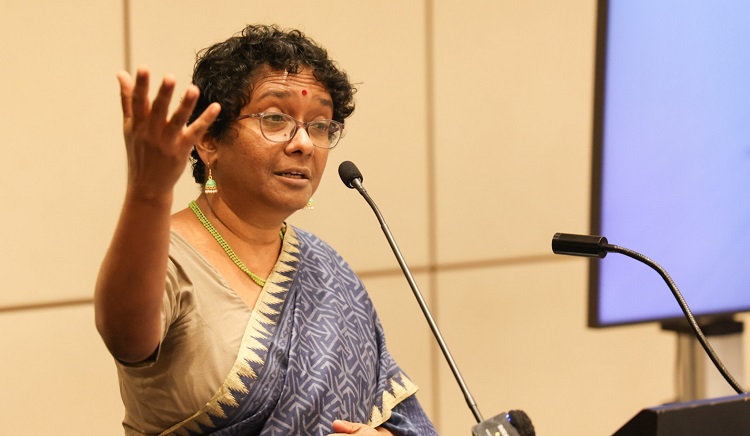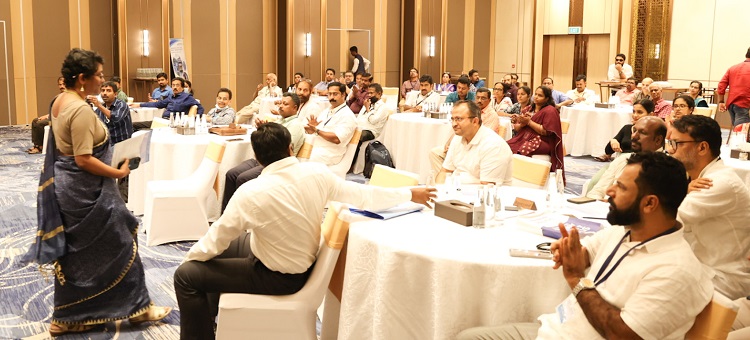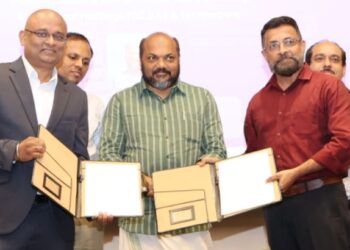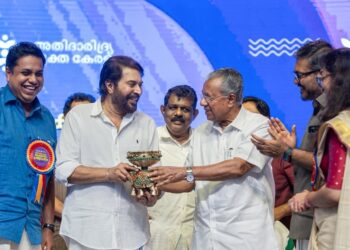An international workshop of experts and government bodies has called for evolving innovative solutions at the regional level and leveraging sustainable technologies to mitigate grim challenges caused by climate change, particularly the issues relating to Water Sanitation and Hygiene (WaSH).
A wide range of cutting-edge technologies and innovations in climate change and their regional applicability were deliberated at the workshop, organized by Bhouma Envirotech Pvt. Ltd, with the support of Suchitwa Mission, Kerala, and Kerala Development and Innovation Strategic Council (KDISC), on Friday.
Inaugurating the workshop on ‘Impact Interventions in sustainability and climate change’, Ms. Sarada Muraleedharan IAS, Additional Chief Secretary, LSGD, Govt. of Kerala, said finding sustainable solutions to waste management will reduce its disaster impact.
Calling for global interventions to reduce carbon footprints or achieving carbon neutrality, she said, “We should not wait for others to get it right; rather each individual should work towards contributing to a resilient economy.”


.
On LSGs role in mitigating climate change, Smt. Sarada mentioned that DCAT (Disaster risk reduction and Climate Action Tracker) project initiated as part of Rebuild Kerala has steered and empowered the local bodies towards achieving climate resilience. “By introducing DCAT, Kerala has gone far ahead of other states in making climate data locally available, thereby making climate forecasting possible for LSGs. It also helps them to come up with a disaster action plan to make the prevention, rescue and rehabilitation easier.”
The major issues discussed at the workshop included Innovative and Decentralised Approach in Liquid Waste Management, Sanitation as a Service (SAAS), Soil Restoration, Waste to Resources and Micro Enterprises for Sanitation. Interestingly, Bhouma Envirotech has developed specialised technologies and innovations in these areas.
In his keynote address, Ms. M G Rajamanickam, Principal Director (LSGD) and Commissioner, Rural Development, said contaminated water bodies act as a clear indicator to assess the extent of waste generated in Kerala.
“Each individual has a role in making an effective waste management system possible. Also, introspection that results in individual change is relevant in ensuring effective waste management and mitigating grim challenges caused by climatic changes. When LSGs work towards effective management of the 77 per cent of dry waste produced in the state, public should be accountable for the management of the rest of the wet waste,” he added.
UN Sustainable Development Goal 13, which mentions the need for urgent action to combat climate change and its impact worldwide, formed the framework of the deliberations.
Dr. Srikanth Mutnuri, Dean, International Programmes and Collaboration Division, BITS Pilani, stressed the need to develop a simple and nature-based decentralised treatment system for ensuring effective management of liquid waste, which is a major concern of Kerala.


Dr. Arumugam Kalimuthu, Managing Trustee and Executive Director, WASH Institute, Delhi, in his presentation on ‘Sanitation as a Service (SAAS) – Story of MTU’, said the vehicle-mounted septage treatment solutions can treat fecal sludge in a cost-effective manner, which, in turn, would help reduce the carbon footprints.
Ms. Bincy Baby, Chairperson, CII – IWN, Kerala & Sustainability Specialist, speaking on the topic ‘Soil Restoration – Afforestation & Green Credits’, referred to the scope of creating Miyawaki forests (planting two to four different types of indigenous trees within every square metre) for reducing carbon and ensuring rich biodiversity in the region.
Mr. Midhu Unnithan – Technology Officer, BacTreat Environmental Solutions LLP, Goa, mentioned the wide scope of cost-effective and rapid food waste composter, and solar-powered generators which have been successfully deployed in major cities, including Thiruvananthapuram.


Ms. Srija Santhosh, Women Lead India Fellow, Reliance Foundation, India & Vital Voices, US talked about how one lakh livelihoods in sanitation can be created by forming small-scale enterprises related to waste management and sanitation.
At the workshop, it was agreed to enable a collaborative platform to deploy innovative solutions that would make possible interventions in sustainability and climate change at regional levels.














